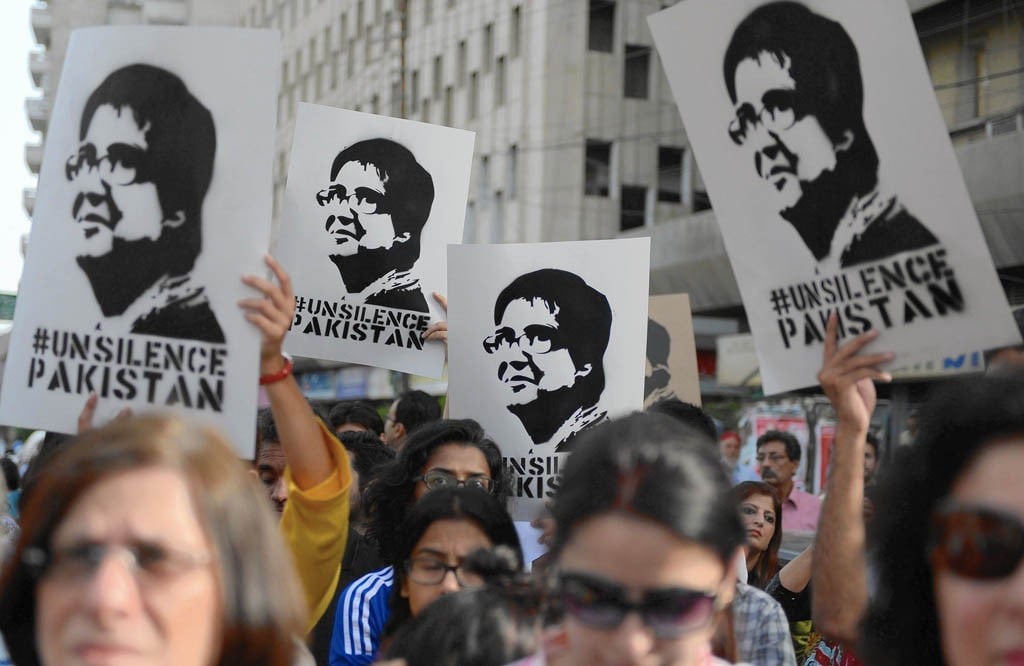
The question is what do we do with what’s patently intolerable in Pakistan and yet shamelessly tolerated?

There are things I like that give me immense pleasure, such as science fiction, poetry, progressive music, collecting postage stamps, travel and dogs, for they have all enriched my life. Then there are other things I don’t like but feel comfortable with, such as people disliking science fiction, poetry, progressive music, philately and dogs.
In fact, my life is full of people who don’t like things I like. They have a right to like what they like and I don’t have to dislike it. But then there are things I don’t like, that I feel distinctly uncomfortable with, such as religiosity, narcissism/vanity, misogyny and rightwing politics. People who like these things -- and there are bucket-loads of them all around me -- are fine as long as they don’t impose them on me. For that’s where the limits of my tolerance start to fade.
Project this analogy over a society, such as Pakistan’s and things get messy because the boundaries of tolerance are forever shifting without agreement on a set of rules on how and under what conditions this can happen. Should I be an atheist? Do I practise alcoholic abstinence? Can I keep company with a homosexual? What business is this of others?
Pakistani laws don’t recognise rights for these communities but I don’t have to be their champion by breaking the laws. I intensely dislike these state-imposed moral codes on citizens but as an individual I will not pick up arms against what I think is wrong. I will dislike these codes but tolerate them because there’s no law against friendship and I can simply resist the codes by vouching for these communities by being their friend. Thus, I consciously contribute to the otherwise intolerable regulations by keeping my conscientious resistance within limits of what’s legally tolerable.
Read also: Buzzword for harmony
It’s upsetting for me that most people around me are simply not aware of the boundaries between the spaces that constitute personal interest and community practices. Under the thresholds that I allow myself, my tolerance will morph into intolerance only when I’m specifically targeted for unsolicited advice on a set of expected behaviours that are not binding on me legally.
How does my intolerance then manifest itself? By simple, non-offensive responses. For example, if there are laws that I don’t like, such as those that strip certain communities from defining their own religions or sects or socio-cultural orientations, I can simply dissociate myself socially from people who endorse these inequalities and speak in favour of the marginalised or harassed communities and groups with the aid of logic.
Assuming and using self-appointed powers to intrude the personal space of others to force them into the context of their own perceptions and belief systems upsets the balance of harmony required for a functional framework for tolerance. But I confess, my tolerance for the intolerable is limited only by law, although I regularly entertain some truly dark thoughts and purple furies that can consume me sometimes.
I see people abandoning logic and law and taking matters into their own hands all the time. Indeed, in a country where the State itself uses violence and violent groups as instruments of policy it is no surprise that plenty of people and groups with vested interests start doing likewise. Which leaves the likes of us -- ordinary citizens like you and me -- the option of borrowing from such dubious precedence, or non-violent alternative means. It takes a lot of tolerance to battle intolerance.
But while in specific cases sometimes becoming intolerant yourself in a bout of righteous rage is understandable, it is a real challenge to fashion a functional philosophy of tolerance for oneself. When I think of it hard enough, it seems to me that the liberal idea of tolerance is more a kind of intolerance and what we really mean by it is "Leave me alone, don’t intimidate me -- I’m intolerant to your over-proximity."
But it’s hard not to justify it.
Just imagine what would happen if we were tolerant of everyone’s views -- we would have no life of our own. On the flip side, in its own right, if there were no intolerance, how would we have had the glorious Faiz Ahmed Faiz and Manto and Sadequain and Habib Jalib and Benazir Bhutto and Baacha Khan and Akbar Bugti and Asma Jahangir and I A Rehman? They all symbolise our collective social, political and cultural resistance and intolerance of the State’s shamelessly pitiful perceptions of its citizens.
While at the individual level, intolerance for tolerance will only promote anarchy, the dynamic can be productive if a collective path is pursued. The philosopher, Karl Popper, offers a way to reconcile these two paradoxes. He says we should not always suppress intolerant philosophies -- as long as we can counter them by rational argument and keep them in check by public opinion, suppression would certainly be unwise.
But, he emphasises, we should claim the right to suppress them if necessary even by force; for it may easily turn out that they are not prepared to meet us on the level of rational argument and respond by force (which is what’s happening in Pakistan).